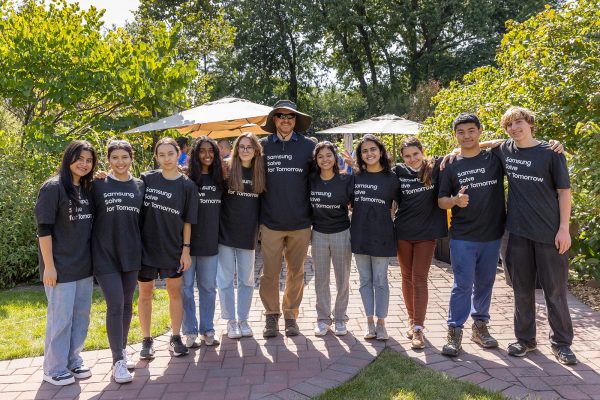Corporate
An Idea That Can Change the World: Encourage Gen-Z Student Entrepreneurs
10/20/2023
Today’s Gen Z middle and high school students are passionate problem-solvers who share an important trait with the influencers who drive much of social media: their readiness to translate their passions into enterprises. That’s a perspective shared by Ann Woo, Head of Corporate Citizenship at Samsung Electronics America in her latest opinion piece for Fast Company.

Ann Woo, Head of Corporate Citizenship
Drawing on her experience leading Solve for Tomorrow, a STEM (Science, Technology, Engineering and Math) education driver that fosters innovation and problem-solving skills among public school students through annual STEM competitions, Ann writes that Gen Z-ers “are at heart creators and consumers, tech- and social-media-savvy individuals who aspire to be ‘makers’ while sharing an innate empathy for their peers and their communities. They see the world as a continuum that cuts across the traditional structure of the subjects—science, history, art, economics—many teachers and parents expect schools to teach. And they are more in touch with national and global concepts of community than cohorts before them.”

New Jersey’s Princeton High School “Science to Startup” team created a sustainable enterprise from their 2021-2022 Samsung Solve for Tomorrow STEM solution.
One consequence is that Gen Z students present complex challenges and opportunities for the STEM education profession. This has deep implications for keeping students engaged in STEM, and for supporting teachers with professional development programs that maintain their motivation and enthusiasm as active participants in this new education paradigm.






